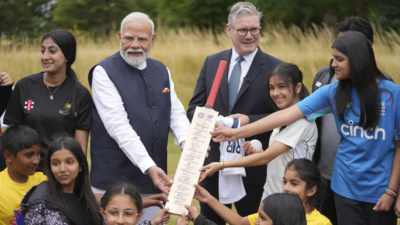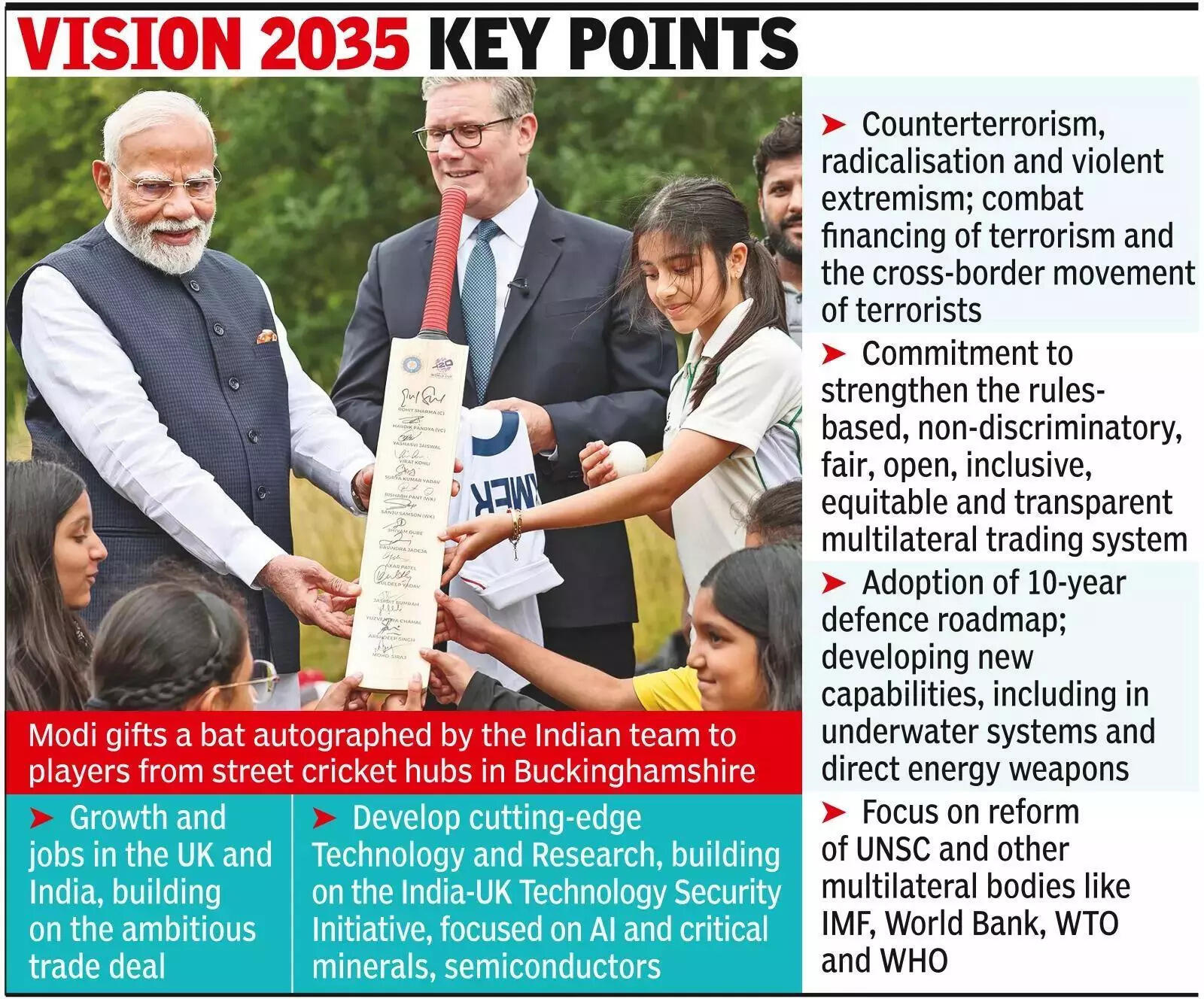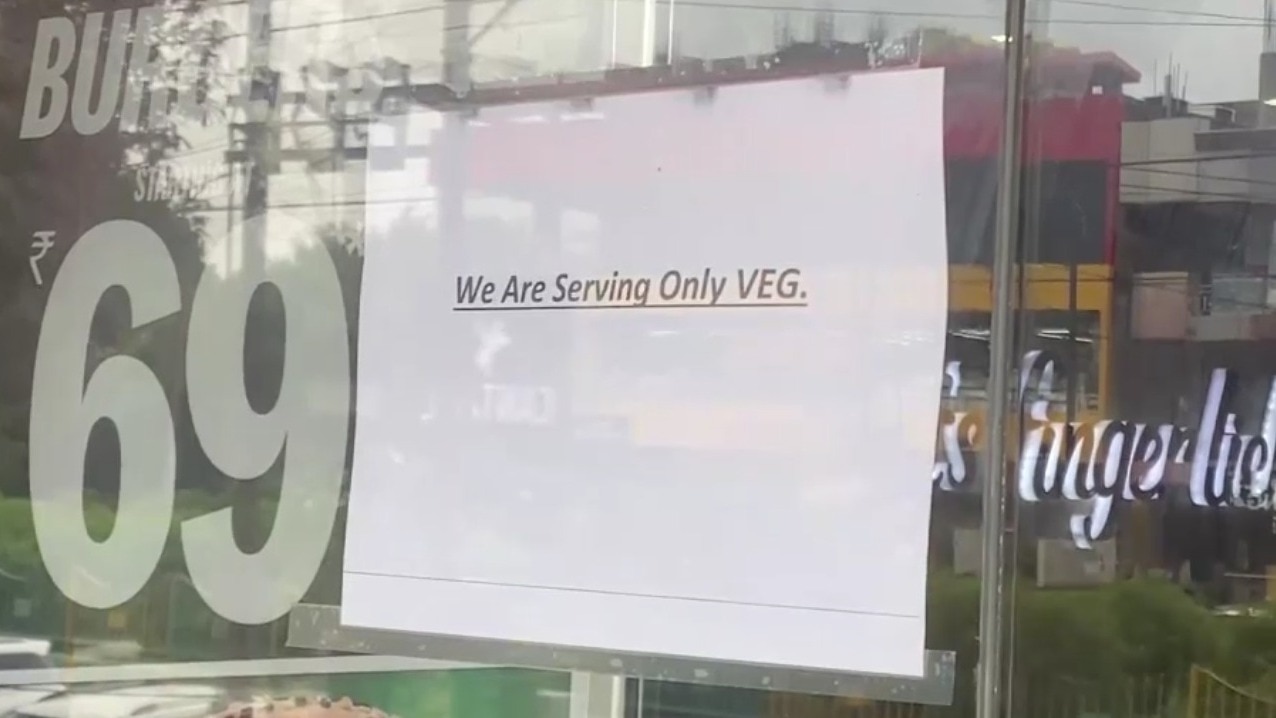ARTICLE AD BOX

India, UK unveil road map to boost defence, tech, energy ties
Prime Minister Narendra Modi strongly raised issues like the need to shun double standards on terrorism, presence of Indian economic offenders in the UK and Khalistan extremism in his meeting with counterpart Keir Starmer, saying those who use democratic freedom to undermine democracy must be held accountable.Thanking Starmer for his strong condemnation of the Pahalgam terrorist attack, Modi said that the two leaders were united in their view that there can be no place for double standards in the fight against terrorism.Modi also said that Indian and British agencies would work together for the extradition of economic offenders, in what was seen as a clear message to fugitives such as Vijay Mallya, Nirav Modi, Lalit Modi and Sanjay Bhandari that government intends to get them back to face legal action in the country.Although government has got assistance, Mallya and Nirav Modi have been seeking to prolong their stay in the UK by using multiple forums for appeal.

While the formalisation of India-UK free trade agreement was the highlight of Modi's visit to the UK, another significant takeaway was the launch of a Vision 2035 roadmap for boosting ties in areas like defence, technology, education, clean energy and people-to-people contacts.
The leaders adopted a blueprint for defence industrial cooperation to promote, as the Indian government said, collaboration in co-design, co-development and co-production of defence products to meet the growing demand in both countries as well as for the world market.On the issue of Khalistan extremism, which he was expected to raise with Starmer, Modi said there was agreement between India and the UK that forces with extremist ideologies must not be allowed to misuse democratic freedoms.
"Those who misuse democratic freedoms to undermine democracy itself must be held to account," said the PM, in his joint press statement with the UK PM."On the matter of extradition of economic offenders as well, our agencies will continue to work together in close coordination and cooperation," added Modi, who sought the UK's cooperation in bringing the fugitives to justice. India and the UK also reached an agreement between the CBI and the UK's National Crime Agency to jointly fight organised crime.Foreign secretary Vikram Misri said that the leaders committed to strengthen the global fight against terrorism. "While noting that extremism and radicalisation pose threat to both societies, they agreed to further enhance bilateral cooperation to deal with the menace," said the official.Modi said that Vision 2035 will serve as a roadmap for a strong, trusted, and ambitious partnership in the areas of technology, defence, climate, education, and people-to-people connectivity.
"It is our commitment that, from AI to critical minerals, semiconductors to cyber security, we shall create the future together," he said, while inviting Starmer to visit India soon. Starmer accepted the invitation. Amid concerns over the erratic US trade policies, both sides also sought to promote a fair, non-discriminatory and inclusive trading system.According to the roadmap, India and the UK reaffirmed their shared commitment to a rules-based international order and to strengthening multilateralism through meaningful reform. Importantly for India, the roadmap focuses on reform of the United Nations, including the security council, and other multilateral institutions such as the Commonwealth, WTO, WHO, IMF, and the World Bank, ensuring these bodies "reflect contemporary global realities and are equipped to address emerging challenges".



.png)
.png)
.png)
















 1 day ago
7
1 day ago
7







 English (US) ·
English (US) ·